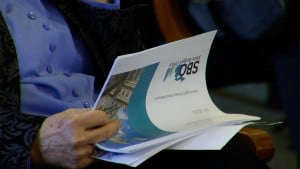
The Michigan House of Representatives passed a budget for the upcoming fiscal year. Investments include health care, child care, education and infrastructure.
(9&10 NEWS) - The state budget has cleared the legislature and is heading to the governor’s desk.
After the state’s K-12 Education budget was passed in June, Wednesday the legislature passed, by a wide margin, the Higher Education budget and the General State budget, with a price tag nearly hitting $70 billion.
Not only was this budget deal reached a week and a half before the October 1 deadline of a state shutdown but it was actually done before noon Wednesday. In a process that usually buds up against the deadline, both sides of the aisle are applauding this massive deal.
“I have heard over and over again, from many people, that having too much money is sometimes worse than not having enough,” said Rep. Sue Allor of Wolverine.
Every budget negotiation is unique but this year’s version was unlike any other. First a major surplus, due to unexpected revenues coming out of the pandemic.
“This certainly was interesting but I think more challenging,” said Sen. Jim Stamas of Midland, “There are a lot of great programs out there that we really want to continue to focus on but we also want to continue to focus on those that can be sustained with ongoing dollars, versus just one time dollars.”
Secondly, more than $6 billion of federal COVID relief to spend after this deal. That led to record spending but also unprecedented saving.
“There’s another billion dollars in general fund that has not been spent, so we are going to go into the January Revenue Estimating Conference and see where we are,” said Sen. Curtis Hertel of East Lansing, “Then have a discussion on supplemental budgets to spend some of those dollars.”
The only thing left is Governor Gretchen Whitmer’s signature. Given her office had an expanded role this session, not many vetoes are expected but the plan does carry boilerplate language that limits the state’s power when it comes to vaccines and masks. Whitmer has stated those may not be enforceable or even constitutional.
“That is their choice and we wanted to make sure they had a voice in the budget as well,” said Stamas of Michiganders having control of mask usage, “We’ll let somebody else figure that out but it was making sure that all Michiganders had an opportunity to express their voice and protect their health.”
According to a release form the governor’s office here are some of the key pieces of the budget plan. The budget will provide a series of investments to help Michigan’s economy, including lowering the costs and expanding the access of childcare for working families. The funding plan includes:
- $108.1 million that makes 105,000 more children eligible for child care by increasing income eligibility to 185 percent of the federal poverty level through fiscal year 2023, then 160 percent ongoing in the following fiscal years.
- $13 million to waive parent copays for childcare through fiscal year 2022.
- $158 million for an ongoing 30 percent rate increase for childcare providers, with an additional $222 million for a temporary rate increase.
- $117.4 million to pay for enrollment in childcare through fiscal year 2023.
- $36.5 million over 3 years to expand the number of childcare spaces for infants and toddlers.
- $700.7 million for stabilization grants and another $100 million for startup grants for childcare providers, including technical assistance and facility improvements.
- $30 million for a one-time $1,000 bonus for childcare staff.
- $100 million for community revitalization and placemaking grants to support economic development in local communities.
The budget will also provide direct support for education and skills training to help address the skills gap and provide Michigan employers with the talent needed to move the economy forward. Investments will include:
- $55 million for the Reconnect program to provide a tuition-free pathway to an in-demand industry certificate or associate degree for Michigan adults age 25 and older to help Michiganders get the skills they need to compete for a good-paying, in-demand job.
- $25 million for the Futures for Frontliners scholarship program that pays for frontline workers to attend local community college tuition-free.
- $40 million for the Going Pro program to expand employer-based training grants that result in industry-recognized credentials and certificates to help raise wages for workers and help employers fill job openings.
- $6 million for wraparound supports for Reconnect or Futures for Frontliners to remove barriers to degree completion.
- $8 million for pre-apprenticeship/apprenticeship training programs that will expand Michigan’s talent pool in the construction and building trades.
- $1 million for Focus: HOPE to support workforce development, youth development, and community empowerment and advocacy programs.
- Increased base funding of 1 percent for operations at universities and community colleges, with a one-time 4% increase in funds to help keep tuition costs down.
The budget will also make strong investments in the state’s infrastructure to provide additional resources necessary to make needed repairs and replacements, including:
- $196 million for local bridge bundling to repair or replace nearly 100 crumbling bridges in serious and critical condition.
- $14.3 million to help local governments prepare for climate change and extreme weather, including flooding and coastal erosion.
- $19 million for dam repairs and replacements to mitigate flooding and hazards caused by dam malfunction.
- $3 million for the Michigan Infrastructure Council.
The budget will also fund key initiatives centered on the health of Michigan families, including:
- $460 million to give a permanent $2.35/hour raise to direct care workers who take care of our most vulnerable in nursing homes and beyond.
- $7.4 million to expand the Infant Home Visiting program for evidence-based home visiting services to at-risk families with infants born with substance exposure.
- $19.1 million for the MIChoice program expansion to provide alternatives to nursing home care and allow seniors to stay in their homes (increase of 1,000 slots).
- $6.7 million for the Sickle Cell Disease Initiative to cover the cost of treatment to around 400 adults and increase outreach and clinical capacity supporting the estimated 4,000 Michigan residents living with sickle cell disease, which disproportionately affects Black people.
- $8.4 million to reduce health disparities and expand the use of community-based navigators to enhance access to health coverage, and improve screening, data sharing and interoperability of existing data systems through the Michigan Health Information Network.
- $5 million for a pilot program to bring down utility bills for families by improving home weatherization and energy efficiency.
The budget also focuses on the need to invest in our water and environment, including:
- $10 million to continue the replacement of lead service lines in Benton Harbor to provide access to safe drinking water.
- $15 million for the Emergency Drinking Water Fund to help the state address drinking water emergencies.
- $14 million to address PFAS and another $22 million to clean up contaminated sites across the state.
- $25 million to clean up the Western Lake Erie Basin by reducing phosphorus levels.
- $10 million for the Lead Poisoning Prevention Fund to help eliminate lead poisoning in homes by injecting private capital into lead remediation efforts.
- $5 million for the State Facility Green Revolving Fund which is a catalyst for energy efficiency and renewable energy projects at state facilities, helping reduce the state’s carbon footprint and save taxpayer dollars.

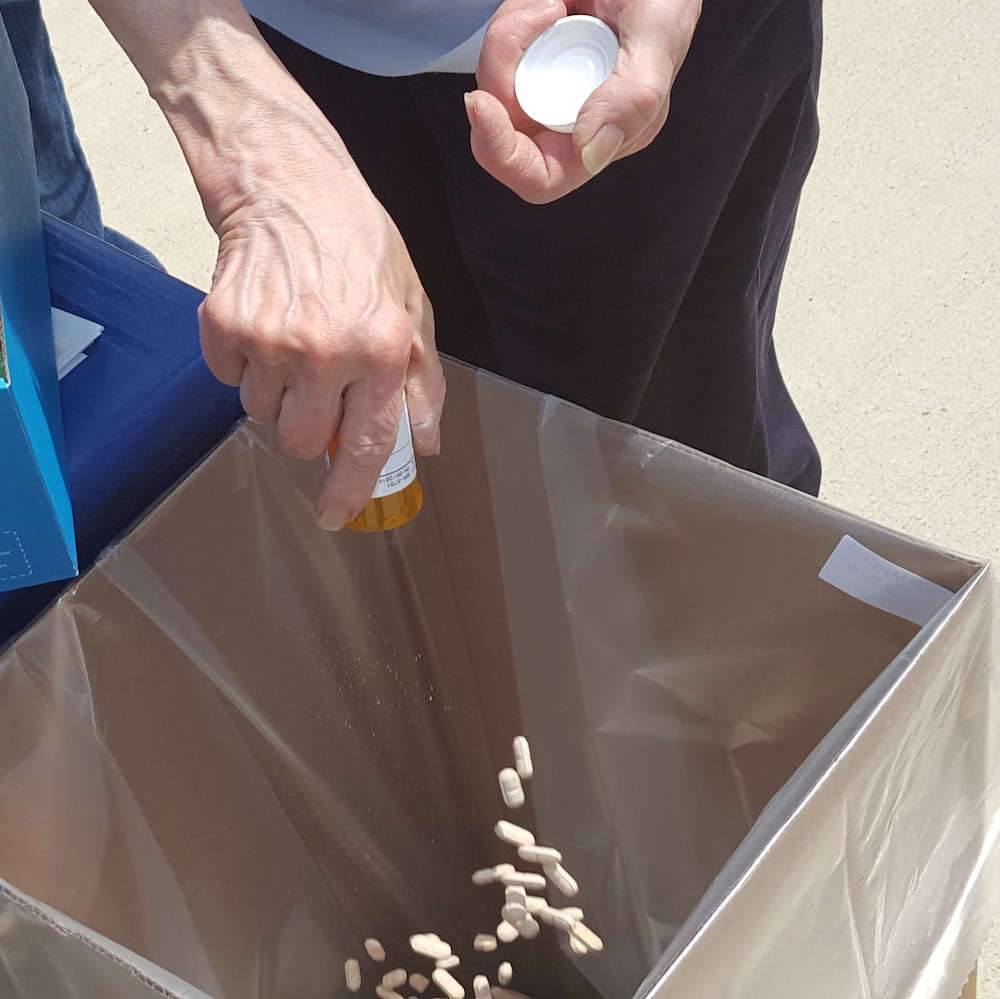 4/26/24 - Saturday is National Prescription Drug Take Back Day
4/26/24 - Saturday is National Prescription Drug Take Back Day
 4/25/24 - Presidential Campaigning Heats Up In Michigan
4/25/24 - Presidential Campaigning Heats Up In Michigan
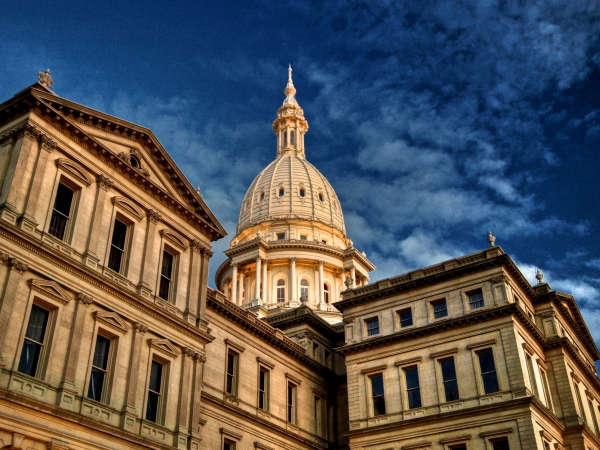 4/24/24 - Senate Passes Foreign Aid Bill
4/24/24 - Senate Passes Foreign Aid Bill
 4/23/24 - Nursing Home Changes
4/23/24 - Nursing Home Changes
 4/19/24 - UPDATE: Christian Music Artist Mandisa Has Passed Away - Tributes
4/19/24 - UPDATE: Christian Music Artist Mandisa Has Passed Away - Tributes
 4/19/24 - Israel Carries Out Military Strike Against Iran
4/19/24 - Israel Carries Out Military Strike Against Iran
 4/18/24 - Ford Issues Another Recall For Some Broncos
4/18/24 - Ford Issues Another Recall For Some Broncos
 4/17/24 - Increased Thefts At Construction Sites
4/17/24 - Increased Thefts At Construction Sites
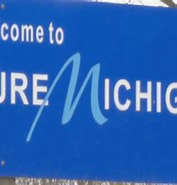 4/16/26 - Conference Focuses On Michigan's Tourism Industry
4/16/26 - Conference Focuses On Michigan's Tourism Industry
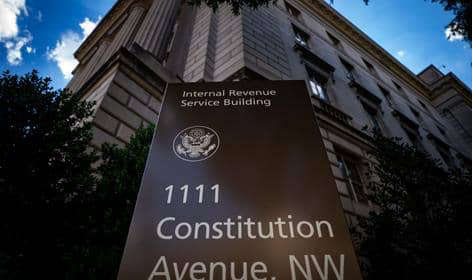 4/15/24 - TAX Day - File By Midnight
4/15/24 - TAX Day - File By Midnight
 4/11/24 - Ford Airport Continues To Upgrade & Expand
4/11/24 - Ford Airport Continues To Upgrade & Expand
 4/10/24 - James & Jennifer Crumbley Receive Sentence
4/10/24 - James & Jennifer Crumbley Receive Sentence
 4/9/24 - White Caps Celebrate Home Opener
4/9/24 - White Caps Celebrate Home Opener
 4/8/24 - Solar Eclipse Viewing Events
4/8/24 - Solar Eclipse Viewing Events
 4/1/24 - Donald Trump To Visit Grand Rapids
4/1/24 - Donald Trump To Visit Grand Rapids


